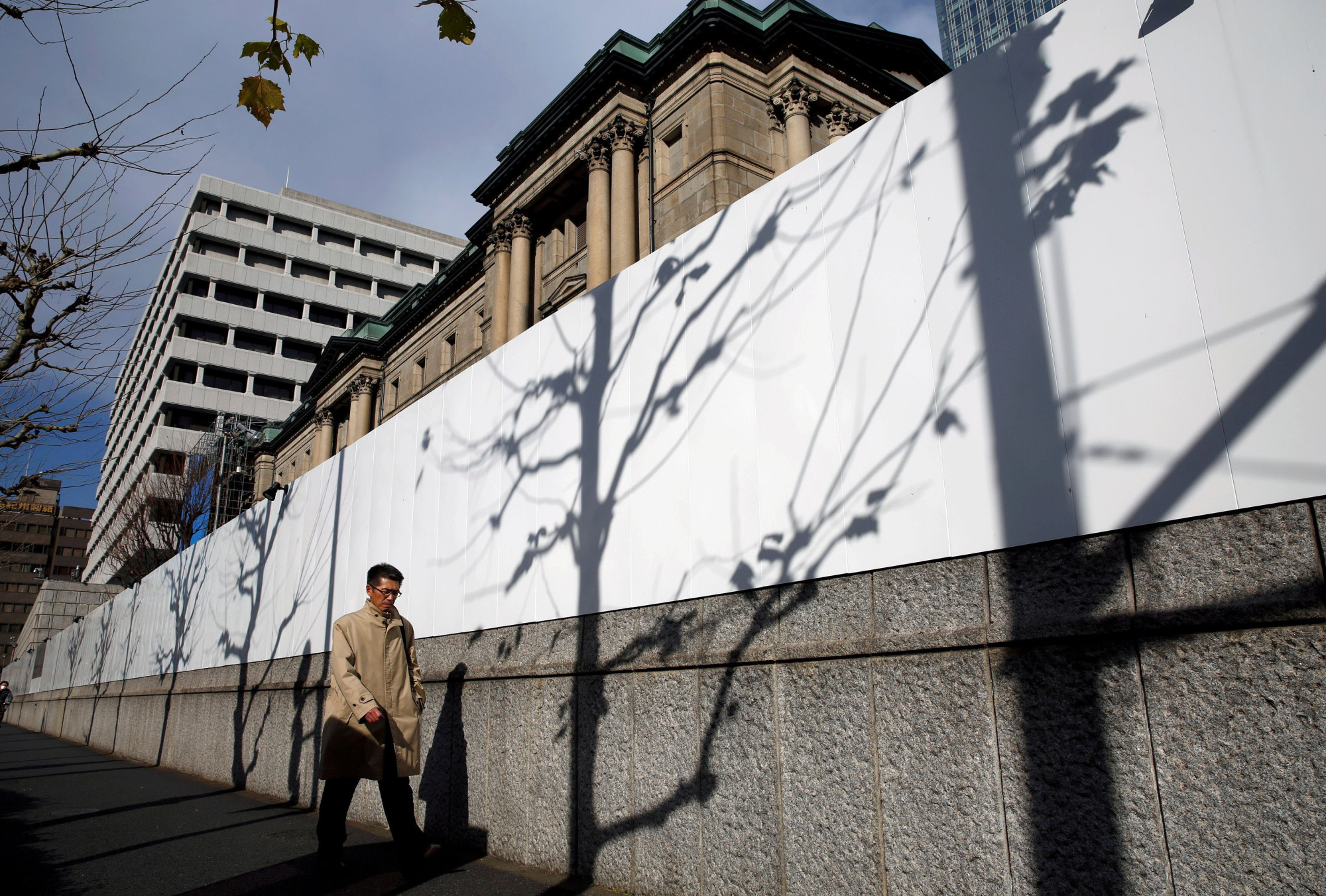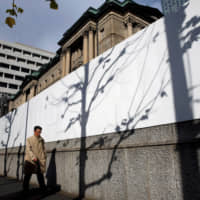The Bank of Japan on Wednesday downgraded its economic assessments of three out of the country's nine regions, citing slowing production due to weak demand from overseas.
In its quarterly Sakura report, the BOJ revised down its views on Hokuriku and Tokai in central Japan, as well as Chugoku in western Japan, whose economies are relatively dependent on exports.
It is the first time the central bank has downgraded its view on three regions since April last year. The BOJ left unchanged its assessments of the remaining six regions: Hokkaido, Tohoku, Kanto-Koshinetsu, Kinki, Shikoku and Kyushu-Okinawa.
All nine regions reported that their economies had been "either expanding or recovering" as domestic demand "had continued on an uptrend," according to the report.
However, the report also said "exports, production, and business sentiment had shown some weakness, mainly affected by the slowdown in overseas economies and natural disasters."
As for the nation's consumption tax increase from 8 percent to 10 percent on Oct. 1, a BOJ official said the tax hike "temporarily affected consumer spending" but its impact on the economy was limited.
The BOJ's January Sakura report followed its quarterly Tankan survey for December, which showed business sentiment at large manufacturers had worsened for a fourth straight quarter to a nearly seven-year low, reflecting a global economic slowdown.
The central bank has been facing an uphill battle to achieve its 2 percent inflation target.
At the meeting with regional branch managers on Wednesday, BOJ Gov. Haruhiko Kuroda reiterated his commitment to taking additional easing measures to achieve the inflation goal if necessary.
The Sakura report — named after its cherry blossom-colored cover — is the Japanese equivalent of the U.S. Federal Reserve's Beige Book and is released every three months following a meeting of the BOJ's regional branch managers.




